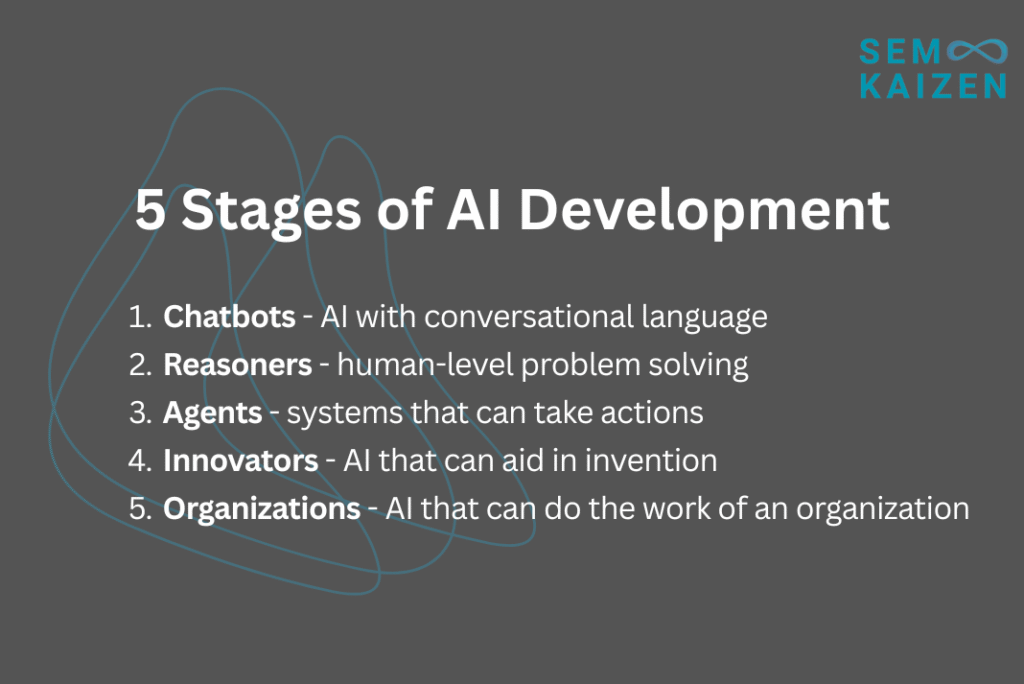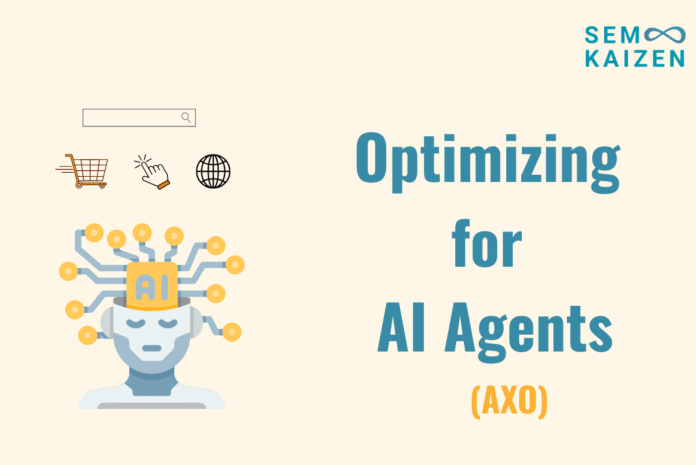How SEO Must Evolve for a Future of Agent-Driven Web Interactions
A quiet revolution is underway. AI agents, the autonomous bots that can browse, decide, and act on the web, are moving from science fiction to product reality. Think of OpenAI Operator, Google’s Project Astra, or Apple’s upcoming AI integrations.
But here’s the pressing question for SEOs and webmasters:
Are we prepared for a world where users don’t visit websites but their agents do?
This isn’t about optimizing for human eyeballs anymore. It’s about optimizing for AI agents who read, parse, and act on our websites. Be it booking a ticket, filling out a lead form, comparing products, or even placing an order, we should be prepared for “Machine-operable pages.”

Why AI Agents Matter to SEO?
AI Agents will become intertwined with web browsers. This means, instead of clicking and interacting with webpages, users will use AI agents to do the work for them. The agent can visit multiple sites, compare products and prices, and carry out the transaction for the users, without user intervention.
This changes how users search and the purpose of web pages!
- They skip the click: Agents summarize, transact, and complete tasks without the user opening the site.
- They act with intent: Agents don’t browse casually; they execute specific goals (e.g., “Book me a cab from JFK to Manhattan for 5 PM”).
- They value structure and semantics over design and copywriting.
In short, the new audience isn’t human. It’s a machine, and your site needs to speak its language.
How do AI Agents work?
AI agents are trained to interact with Graphical User Interfaces (GUIs), which can include the buttons, menus, and text fields that users see on a computer screen.
By combining the GUI capabilities, semantic understanding, and structural reasoning, AI agents can interact with web elements. This also allows AI agents to break tasks into multi-step plans, execute step by step logically, and even solve issues when challenges arise.
What Do AI Agents Need?
AI agents interact with websites differently from traditional users or even search engine crawlers. They need:
- Structured, machine-readable content
- APIs or interactive components that are accessible and predictable
- Clear calls to action with minimal ambiguity
- Trust signals and verifiable business info
- Semantic clarity through schema, metadata, and clean code
This is SEO with a new lens: Agent Experience Optimization (AXO).
How to Optimize for AI Agents?
1. Implement Schema Markup
Schema isn’t just for rich snippets, it can act as an instruction for AI agents as well.
- Use JSON-LD extensively
- Prioritize
Product,Event,HowTo,FAQ,LocalBusiness - Ensure schemas are optimized for all relevant attributes and data subset
2. Design With Machine Accessibility in Mind
Agents aren’t wowed by design — they need clean, semantic HTML, minimal JavaScript dependencies, and meaningful element labeling.
- Ensure buttons and form inputs have clear
aria-labelsornameattributes. - Avoid custom form elements that can’t be understood without JS.
- Use server-rendered content when possible — avoid lazy loading critical data.
3. Expose APIs or Structured Endpoints (Where Safe)
Allow Agents to interact with webpages like how human users do.
- Expose APIs for common actions (e.g., booking, adding to cart, checking availability).
- Consider creating well-documented endpoints that map actions, not just pages.
- Use standards like OpenAPI if applicable.
4. Ensure Authentication & Anti-Bot Logic Doesn’t Block Legitimate Agents
Many websites use CAPTCHAs, pop-ups, and blockers that kill automation.
- Distinguish between bad bots and AI agents trying to help users.
- Allow Google and ChatGPT’s known user agents if they intend to interact (monitor developments in their agent capabilities and policies).
- Provide fallback options or agent-friendly authentication where possible.
5. Reframe KPIs for the Agent Era
If agents start completing transactions without human visits, traditional KPIs like “sessions” and “CTR” become less meaningful.
Start thinking in terms of:
- Agent Transactions (bookings, leads, purchases via API or agent-like interface)
- Agent Accessibility Score (how easily a bot can parse your key offerings)
- Interaction Readiness (how actionable your content is)
What Happens If We Don’t Adapt?
Just like mobile-first websites won the last SEO revolution, agent-ready websites will dominate the next.
The following sites would fall behind as agents skip them in favor of cleaner, structured, action-ready competitors:
- opaque sites
- sites bloated with JavaScript,
- pages designed only for visual UX
What are the risks associated with AI agents?
1. Bypassing Traditional Web Traffic
Risk: AI agents may complete tasks (e.g., booking, buying, retrieving answers) without the user ever visiting your site.
Impact
- Loss of traffic, lower pageviews, reduced ad impressions, and degraded attribution tracking.
- Your SERP listing might be read, scraped, or acted upon — but not clicked.
- Example: An agent books a hotel room directly from SERP data or reviews without visiting the hotel’s actual site.
2. Loss of Context and Brand Experience
Risk: Agents summarize your offerings in a few lines, stripping away brand storytelling, design, and emotional hooks.
Impact
- Reduced brand recall, commoditization of products/services.
- Rich, immersive UX is lost; you’re reduced to structured data and price comparisons.
3. Data Misinterpretation or Inaccuracy
Risk: AI agents may misread structured or unstructured data — booking the wrong date, pulling outdated info, etc.
Impact
- Bad user experience, order errors, loss of trust.
- An incomplete or poorly maintained schema can lead to wrong actions being executed.
4. Security & Abuse Risks
Risk: If agents can fill forms, book actions, or scrape data, malicious actors could exploit that behavior.
Impact
- Spam submissions, fake orders, scraping of proprietary data.
- Open-form endpoints or APIs could become attack vectors
- Prompt injection attacks, where malicious instructions in third-party websites can mislead the model away from the user’s intended actions
5. No Attribution, Difficult Analytics
Risk: AI agents may complete tasks without tracking tags firing.
Impact
- GA4, Microsoft Clarity, and other analytics tools may miss entire user journeys.
- Difficult to measure agent-led conversions or user value.
6. Over-Reliance on Schema or APIs
Risk: Some sites may over-optimize for machines and neglect human readability or storytelling.
Impact
- Poor human experience can lead to lower retention.
- Google’s algorithms still consider user behavior; don’t forget the human users entirely.
8. Unpredictable Agent Behavior
Risk: Agents are black boxes. They may choose your competitor, summarize incorrectly, or change behavior after model updates.
Impact
- Lack of control or recourse when something breaks.
- Like algorithm updates, but now it’s behavior updates from agents that act on your behalf.
How to Mitigate These Risks:
- Keep structured data and APIs accurate and updated.
- Add agent-specific terms or throttling (e.g., via robots.txt, APIs).
- Monitor AI agent traffic separately (if possible).
- Design experiences for humans first, machines second.
- Add fallbacks and validation layers to all AI-triggered workflows.
Final Thoughts: From SEO to AXO
The rise of AI agents challenges the very foundation of SEO. But it also opens a powerful new dimension: Agent Experience Optimization (AXO).
- If SEO were about getting discovered,
- AXO is about getting delegated to.
The web is becoming a task execution platform. If you want to stay relevant, make your content/pages not just findable, but actionable.
Subscribe to Our Newsletter!


Solid analysis!